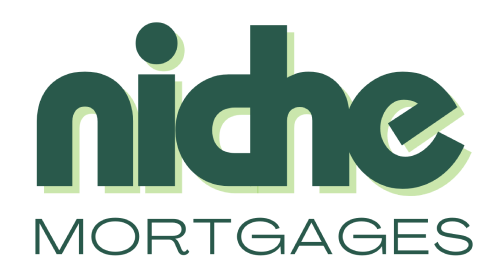Securing a commercial mortgage is an important step for business owners looking to purchase property, expand operations, or invest in real estate. However, the process can be more complex than obtaining a residential mortgage, requiring careful planning and preparation. To help you navigate the journey, here are some essential tips for securing a commercial mortgage that meets your business needs.
Understand Your Financial Health
Before applying for a commercial mortgage, take a close look at your business’s financial health. Lenders will evaluate factors like your revenue, profit margins, and debt-to-income ratio to determine your ability to repay the loan. To improve your chances:
- Ensure your financial records are accurate and up to date.
- Reduce existing debts to lower your debt-to-income ratio.
- Build up cash reserves to demonstrate financial stability.
Strong financials can make you a more attractive candidate and may help you secure better terms.
Prepare a Comprehensive Business Plan
A detailed business plan is often required when applying for a commercial mortgage. It helps lenders understand your goals and how the loan will benefit your business. Your plan should include:
- Revenue projections for the next 3-5 years.
- Details about the property you’re purchasing and its intended use.
- A market analysis showing the demand for your business.
- Strategies for growth and repayment of the loan.
A well-crafted business plan demonstrates to lenders that you’ve thoroughly considered how the mortgage will fit into your business strategy.
Know the Types of Commercial Mortgages Available
Not all commercial mortgages are the same, and understanding your options can help you choose the best fit for your needs. Common types include:
- Fixed-Rate Mortgages: Offer consistent payments with a stable interest rate.
- Variable-Rate Mortgages: Rates fluctuate with market conditions, which can be advantageous if rates are low.
- Bridge Loans: Short-term financing to bridge the gap until long-term funding is secured.
If your business has unique financial needs or you require more flexibility, consider exploring private mortgage options.
Gather Required Documentation
Lenders will need extensive documentation to assess your business’s creditworthiness and the viability of the loan. Commonly required documents include:
- Business financial statements (income statement, balance sheet, and cash flow).
- Personal and business tax returns for the past two to three years.
- A detailed property appraisal.
- Proof of business ownership and legal documents (e.g., articles of incorporation).
Having all necessary documents prepared in advance can streamline the process and demonstrate your readiness.
Build a Strong Credit Profile
Both your personal and business credit scores will play a major role in securing a commercial mortgage. Lenders prefer borrowers with strong credit histories, as it signals reliability and financial responsibility. To improve your credit profile:
- Pay all bills on time.
- Reduce outstanding debts.
- Address any errors on your credit report.
A higher credit score can lead to lower interest rates and better loan terms, saving your business money in the long run.
Save for a Larger Down Payment
Most commercial mortgages require a down payment of at least 20%-30% of the property’s purchase price. A larger down payment reduces the lender’s risk and can increase your chances of approval. It may also help you negotiate more favorable terms, such as lower interest rates or reduced fees.
Shop Around for Lenders
Not all lenders offer the same terms, so it’s worth your time to compare multiple options. Commercial mortgages are available through:
- Banks: Traditional banks typically offer competitive rates but have stricter qualification criteria.
- Credit Unions: Often provide more personalized service and favorable terms for small businesses.
- Private Lenders: Offer more flexibility, especially for borrowers with unique needs or less-than-perfect credit. Learn more about commercial mortgage loans from private lenders.
Comparing lenders allows you to find the best rates, terms, and repayment options for your business.
Work with a Mortgage Broker
A mortgage broker can be invaluable in navigating the complexities of commercial mortgages. Brokers have access to multiple lenders and can help you find options that match your business’s financial situation. They can also assist with preparing documentation and negotiating terms, saving you time and effort.
Understand Additional Costs
Commercial mortgages often come with additional costs beyond the interest rate. Be prepared for:
- Origination Fees: Charged for processing the loan.
- Appraisal Fees: To determine the property’s value.
- Closing Costs: Including legal fees, title insurance, and administrative charges.
Knowing these costs upfront can help you budget and avoid surprises at closing.
Ready to Secure a Commercial Mortgage for Your Business?
To secure a commercial mortgage, focus on understanding your financial health, preparing a detailed business plan, gathering necessary documentation, and building a strong credit profile. Save for a larger down payment, compare lenders, and consider working with a mortgage broker for expert guidance.
Navigating the commercial mortgage process doesn’t have to be overwhelming. Contact Niche Mortgages today to explore tailored mortgage solutions and get the expert support you need to achieve your business goals!
About the Author

Jonathan Yien
Jonathan Yien is a seasoned mortgage broker at DLC Clear Trust Mortgages with a rich background in financial advising from his time at TD Canada Trust. He is dedicated to helping clients achieve their financial and homeownership goals.

